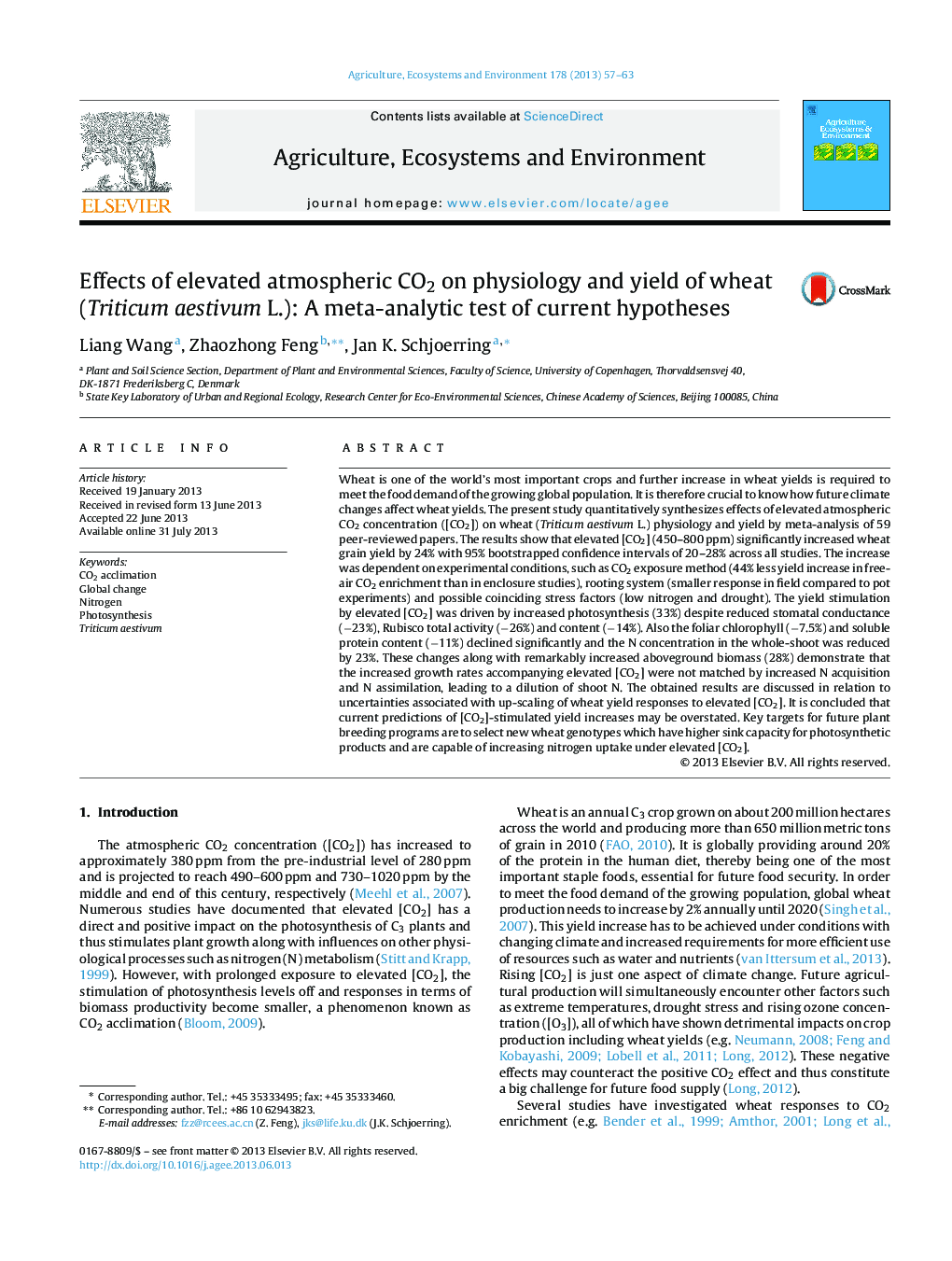| کد مقاله | کد نشریه | سال انتشار | مقاله انگلیسی | نسخه تمام متن |
|---|---|---|---|---|
| 2414225 | 1552074 | 2013 | 7 صفحه PDF | دانلود رایگان |

• We quantify effects of increasing CO2 on wheat physiology and yield.
• We test current hypotheses of CO2 acclimation in C3 plants.
• Yield increases depend on exposure method, rooting system and stress factors.
• CO2-stimulated growth is not matched by increased N acquisition and N assimilation.
• Current predictions of CO2-stimulated yield increases may be overstated.
Wheat is one of the world's most important crops and further increase in wheat yields is required to meet the food demand of the growing global population. It is therefore crucial to know how future climate changes affect wheat yields. The present study quantitatively synthesizes effects of elevated atmospheric CO2 concentration ([CO2]) on wheat (Triticum aestivum L.) physiology and yield by meta-analysis of 59 peer-reviewed papers. The results show that elevated [CO2] (450–800 ppm) significantly increased wheat grain yield by 24% with 95% bootstrapped confidence intervals of 20–28% across all studies. The increase was dependent on experimental conditions, such as CO2 exposure method (44% less yield increase in free-air CO2 enrichment than in enclosure studies), rooting system (smaller response in field compared to pot experiments) and possible coinciding stress factors (low nitrogen and drought). The yield stimulation by elevated [CO2] was driven by increased photosynthesis (33%) despite reduced stomatal conductance (−23%), Rubisco total activity (−26%) and content (−14%). Also the foliar chlorophyll (−7.5%) and soluble protein content (−11%) declined significantly and the N concentration in the whole-shoot was reduced by 23%. These changes along with remarkably increased aboveground biomass (28%) demonstrate that the increased growth rates accompanying elevated [CO2] were not matched by increased N acquisition and N assimilation, leading to a dilution of shoot N. The obtained results are discussed in relation to uncertainties associated with up-scaling of wheat yield responses to elevated [CO2]. It is concluded that current predictions of [CO2]-stimulated yield increases may be overstated. Key targets for future plant breeding programs are to select new wheat genotypes which have higher sink capacity for photosynthetic products and are capable of increasing nitrogen uptake under elevated [CO2].
Figure optionsDownload as PowerPoint slide
Journal: Agriculture, Ecosystems & Environment - Volume 178, 15 September 2013, Pages 57–63